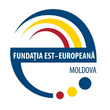Organizații vizate:
Anunțuri de Angajare
- Detalii
- Categorie: Angajări
Final external evaluation - MD26 (Caritas Czech Republic)
Informațiile prezentate în articolul de mai jos pot să nu mai fie actuale sau să nu mai reflecte activitățile și programele curente. Anunțul este păstrat în arhivă pentru a asigura transparența și accesul public la informațiile despre inițiativele și proiectele implementate anterior.
Terms of Reference
|
Project title |
„Ensuring the quality and accessibility of medical-social homecare services” |
||
|
Implementing organization |
Caritas Czech Republic (CCR) |
||
|
Place of implementation |
Republic of Moldova |
||
|
Donor |
Czech Development Cooperation |
||
|
Type of contract |
Service contract |
||
|
Type of assignment |
Final externa evaluation |
||
|
Application deadline |
31st of October 2022 |
||
Organizational Context
The Department of Humanitarian Aid and Development Cooperation (DHADC) has been a part of Caritas Czech Republic (CCR) since 2004, the latter being the biggest nongovernmental provider of social and health services in the Czech Republic. Through DHADC, CCR is engaged in development cooperation and humanitarian aid, its core target countries being Georgia, Iraq, Moldova, Mongolia, Ukraine and Zambia. The extent of development and humanitarian aid activities places CCR on the second position among Czech NGOs in this regard. CCR is committed to fighting poverty and social exclusion, as well as promoting sustainable human development, social justice and sustainable social systems in the Czech Republic and throughout the world.
For more info: https://svet.charita.cz/en/about-us/
|
Project information |
Project Period
May 2019 – December 2022
Target groups
- NGOs members of Union of the Community Service Providers;
- Representatives of Ministry of Labour and Social Protection;
- Representatives of Ministry of Health;
- Representatives of 2 new opened homecare centers in Ocnița and Vulcănești districts;
- Representatives of 8 existing homecare centers;
- TCP Estera Center staff.
Final beneficiaries
- Beneficiaries (elderly and people with disabilities) of homecare services provided in 10 homecare services;
- Representatives of two Local Authorities selected for the development of homecare services;
- Professionals (caregiverrs) working with vulnerable people who provide homecare services
- Overal popopulation who will benefit of change in the legal and normative framework related to social and medical homecare fields.
Institutions involved:
- Ministry of Health;
- Ministry of Labor and Social Protection;
- Ministry of Education;
- District (Rayonal) Directorates of Social Assistance and Family Protection;
- Union of the Community Service Providers.
Project summary
This project aims to increase the quality and availability of homecare services provided to elderly people in the Republic of Moldova. The project will support the efforts of local NGOs, by developing their capacity, to initiate institutional, procedural and legislative changes in the public administration sectors in line with the needs of elderly people and local stakeholders. Based on pre-project analyses and, sets of recommendation for these changes will be developed negotiated with relevant ministries. Also, the project will support UCSP member organizations to increase their capacities to provide qualitative and accessible services. Project will focus on increasing geographical coverage with homecare services by opening 2 new centres and consolidating the 8 existing centres. The developed policy papers and concepts including the new profession in homecare field, the law for the social protection of elderly people, the criteria of contracting the medical homecare services and the methodology of calculation of the social tariff will contribute the comprehensive intervention in line with identified needs.
Through this project the 8 partner organisation partners will create the lobby and advocacy working groups which will on one hand of benefit from capacity building activities and one another hand will patriciate as active body in all lobby and advocacy activities planned in the project. The project proposes a systemic approach to problem-solving by involving multiple actors and initiating changes at different levels.
The overall objective of the project is to contribute to the development of homecare sector in Moldova.
The specific objectives of the project:
- to increase the quality and accessibility of homecare services in Republic of Moldova;
- to initiate the necessary institutional, procedural and legislative changes allowing the extension of the socio-medical (integrated) home care group of clients and geographical coverage.
|
SCOPE AND FOCUS OF THE EVALUATION |
Final external evaluation of a development project “Ensuring the quality and accessibility of medical-social homecare services”, funded by the Czech Development Agency and implemented by the leading partner Caritas Czech Republic along with AO Pro-Development and AO Homecare.
Expected duration of assignment
November – December 2022
Purpose of the evaluation
The final evaluation findings are expected to:
- Evaluate achievement of specific objectives, indicators and project results;
- Analyze and possibly determine the impact [knowledge progress] of trained people and stakeholders (tools and % share should be specified in the proposed methodology);
- Analyze progress, cost effectiveness, project management and organization, impact and sustainability of the project activities in relation to the de facto circumstances in Moldova;
- Identify the supporting factors and constraints that have led to achievement or lack of achievement;
- Provide recommendation(s) for future actions in the homecare field in Moldova
Evaluation criteria
The evaluation utilises the Organisation for Economic Co-operation and Development Assistance Committee (OECD DAC) evaluation criteria as defined below:
- Relevance and strategic fit: the extent to which the objectives are in keeping with national and local priorities and needs, the constituents’ priorities and needs, and the donor’s priorities for the project countries;
- Coherence: the extent to which other interventions support or undermine the intervention, and vice versa. This includes internal coherence and external coherence, in particular, synergies and fit with national initiatives and with other donor-supported projects and project visibility
- Impact –the extent to which the project the intervention causes higher-level effects (such as changes in norms or systems, whether this intervention benefited equally al target groups, including the most disadvantaged and vulnerable; the extent to which the project led to other changes, including “scalable” or “replicable” results.
- Effectiveness - the extent to which the project can be said to have contributed to the development objectives and the immediate objectives and more concretely whether the stated outputs have been produced satisfactorily;
- Efficiency - the productivity of the project implementation process taken as a measure of the extent to which the outputs achieved are derived from an efficient use of financial, material and human resources;
- Sustainability – the extent to which adequate capacity building of partners has taken place to ensure mechanisms are in place to sustain activities and whether the existing results are likely to be maintained beyond project completion.
|
METHODOLOGY for EVALUATION |
The evaluation methodology is expected to use a mix of qualitative and quantitative methods, to be defined and approved as part of the evaluation inception report. The methodology should clearly state the limitations of the chosen evaluation methods, including those related to representation of specific group of stakeholders. Envisaged steps include the following:
- Inception meeting with the project team. The objective of the consultation is to reach a common understanding regarding the status of the project, the priority assessment questions, available data sources and data collection instruments and an outline of the final evaluation report. The following topics will be covered: project background and materials, key evaluation questions and priorities, list of stakeholders, outline of the inception and final report;
- Submission of the Work Plan and short Inception Report (2-5 pages) which will indicate the steps/phases and dates of the process in which the Evaluation will take place;
- Desk review: Review of project and its components materials, data, among others prior or in parallel to the evaluation interviews as required by the proposed methodology;
- Evaluation interviews (individual or collective) with stakeholders;
- Debriefing with the CCR teame after submission of the draft final report.
Timeline and deliverables
|
Activity |
Deliverable |
Time allocated |
|
Inception meeting with the project team |
Inception report and work plan |
2 days |
|
Work Plan and short Inception Report development |
||
|
Field Visits |
Draft report |
25 days |
|
Data analysis, debriefing and presentation of draft Evaluation Report |
||
|
Validation |
||
|
Finalization of Evaluation report incorporating additions and comments provided by all stakeholders |
Final Report |
2 days |
Deliverables description
Inception report: The Evaluator will prepare an inception report which details the evaluators understanding of the evaluation and how the evaluation questions will be addressed. This is to ensure that evaluator and the stakeholders have a shared understanding of the evaluation. The inception report will include the evaluation matrix summarizing the evaluation design, methodology, evaluation questions, data sources and collection analysis tool for each data source and the measure by which each question will be evaluated. The report will include the scope of work, work plan, time frame, analysis. The inception report should include a proposed schedule of tasks; activities and deliverables, with clear responsibilities for each task or product.
Draft Evaluation report: The Evaluator will prepare a draft Evaluation Report, cognizant of the proposed format of the report and checklist used for the assessment of valuation. Comments from the stakeholders will be provided within 5 days after the reception of the Draft Report. The report will be reviewed to ensure that the evaluation meets the required quality criteria. The report will be produced in English.
The final report (25 to 50 pages): Will be submitted not latter that 7 days after receiving comments from Caritas Czech Republic project team.
The content and the structure of the final analytical report with finding, recommendations and lessons learnt covering the scope of the evaluation should meet the requirements of the Caritas Czech Republic and should include the following tentative components:
- Executive summary
- Introduction
- Description of the evaluation methodology
- Situational analysis with regard to the outcome, outputs and partnership strategy
- Analysis of opportunities to provide guidance for future programming
- Key findings, including best practices and lessons learned
- Conclusion and recommendations
- Appendices: charts, terms of reference, field visits, people interviewed, documents reviewed
TIME FRAME OF ASSIGNMENT
Deadline for applications: 31 October 2022
Start of work: 7th November 2022 (preparatory work, field data collection, report drafting)
Submission of draft evaluation report: 10thof December 2022
Feedback from CCR on the draft evaluation report: 15th of December 2022
Submission of final evaluation report: 17th of December 2022
REQUIREMENTS and SELECTION
Expertise and qualification
Necessary:
- University degree in areas of overseas development/humanitarian action/economics or social science or areas relevant for the assignment;
- Extensive expertise, knowledge, and experience in the field of evaluation of development programmes
- At least 5 years of experience in working with international organizations and donors; • Experience of programme formulation, monitoring and evaluation; Fluency in written and spoken English
- Knowledge and experience of using participatory approaches and innovative facilitation techniques
- Demonstrated excellent analytical skills (evidence required)
- Excellent interpersonal and communication skills, and comfortable working across cultures
- Demonstrated understanding of development sector in the field of health care (verifiable information on relevant experience required)
Recommended:
- Expertise in inclusion field or social protection sector, prevention programs, educational programs in health sector
- Experience in working in Moldova
Selection of supplier
Contractor’s performance will be evaluated against such criteria as: description of experience and expertise (copies of documents proving the expertise and experience shall be attached), timeliness, responsibility, initiative, communication, accuracy.
The description of experience and expertise has to include:
- contacts to persons / institutions that can provide reference, and / or
- copies of official documents proving the experience and expertise stated
The selection criteria will be as follows:
- Offered price (40%)
- Proven expertise and experience (60%)
TERMS OF ASSIGNMENT
Selected consultant / group of consultants/ company will be subcontracted by CCR to produce the deliverables specified above. The price agreed on will cover consultant´s remuneration, all costs incurred by the consultant related to the assignment and all taxes and fees required by law. The price will be final and cannot be increased under any circumstances. CCR will provide the consultant with all information and documents it has at its disposal needed to conduct the evaluation.
HOW TO APPLY
Interested candidates should send their offers in English with clearly indicated Name and Surname to the following address martina.stehnova@charita.cz by 31 October 2022 with the subject line “MD26 final evaluation”
Candidates should apply by presenting the following documents:
a. CV(s) for each team member indicating all past experience from similar assignments, as well as the contact details (email and telephone number) of the Candidate(s) and at least three (3) professional references;
b. Financial Proposal that indicates the all-inclusive fixed total contract price, supported by a breakdown of costs;
c. Copies of documents proving the expertise (links).
Incomplete offers and offers received after the deadline will not be considered. CCR reserves the right to cancel the tender at any time.
- Request for Expressions of Interest for contracting a Procurement Specialist within NORLD EQIP Project
- Termen extins privind selectarea serviciilor de consultanță pentru instruirea APL pe eficiență energetică și elaborarea Planului Local Integrat privind Energia și Clima (PLIEC) al comunei Baimaclia
- Centrul Național de Prevenire a Abuzului față de Copii (CNPAC) angajează psiholog/ă în cadrul Centrului de asistență și reabilitare psihosocială a copilului și familiei AMICUL
- UCIPE (Proiectul PEEM) Specialist Aspecte Sociale și Implicarea Părților Interesate
- "Ma Implic, Phase 2" project is looking for a team of 3 Consultants (Technical Operation & Maintenance Expert, Institutional & Managerial Expert, and Legal Expert)
Angajări pe Telegram
Nu pierdeți niciun anunț de angajare postat pe site! Urmăriți Canalul dedicat pe Telegram:

Top organizatii
2025 CIVIC DIGITAL SOLUTIONS
Email: support@portal.civic.md








